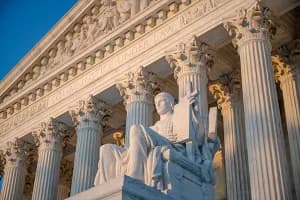A. Cases
The Deceptive Trade Practices/Fraud cases touch on a variety of alleged misconduct. Many of these cases, such as the Nerey and Aerovault cases discussed below, assert that the real estate professionals misrepresented fees or costs associated with the real estate transaction. In a case from Washington, home purchasers successfully alleged a deceptive trade practices claim against listing representatives who failed to provide specific disclosures regarding airport noise as required by a local ordinance.
- Nerey v. Greenpoint Mortgage Funding, Inc., 144 A.D. 3d 646 (N.Y. App. Div. Nov. 2, 2016)
Seller’s representative was not liable for alleged scheme to defraud home purchasers where licensee had no involvement in mortgage and there was no evidence of an intent to deceive.
Home purchasers claimed that seller’s real estate representative and the associated broker acted with a mortgage broker in a scheme to defraud the purchasers into purchasing a home they could not afford. The purchasers alleged that the parties made misrepresentations regarding the purchase price, appraisal value of the home, and terms of the mortgage. The court granted summary judgment in favor of the representative and broker, dismissing the claims against them. The purchasers appealed the decision.
On appeal, the court found that the real estate defendants demonstrated that there was no misrepresentation regarding the purchase price of the property or the mortgage terms. Acting as the seller’s representative, the licensee had no involvement in setting the mortgage terms. Because the alleged misrepresentation concerns a matter beyond the representative’s control and outside of her knowledge, any reliance on alleged misrepresentations is not justifiable. Also, the purchasers failed to present any evidence of an intent to deceive them, offering only suspicion and conjecture to suggest an intent to deceive. In addition, the mortgage documents signed by the purchasers at closing reflected the mortgage terms. Summary judgment for defendants was affirmed.
2. Aero Vault Johnson, LLC v. Cushman & Wakefield, Inc., No. G051698, 2016 WL 4218712 (Cal. Ct. App. Aug. 5, 2016); Aero Vault Johnson, LLC v. Cushman & Wakefield, Inc., No. G051701, 2016 WL 4218719 (Cal. Ct. App. Aug. 5, 2016)
Seller’s broker not liable for alleged scheme to defraud purchasers where there was no evidence of broker’s knowledge of the scheme.
In this case, the parties engaged in a series of real estate transactions involving 1031 exchanges (transactions in which the proceeds of a property sale are used to buy “like kind” property to avoid capital gains taxes on the first sale). The plaintiffs invested $750,000 for interests in two different properties. The purchasers alleged that the defendants conspired to mislead and defraud the purchasers regarding the costs of the 1031 transaction, and brought claims for intentional misrepresentation, negligent misrepresentation, fraud, and unfair business practices. Specifically, the purchasers claimed that the defendants set the purchase price of the “like kind” property at a price higher than that negotiated with the seller, and then paid the premium to themselves through hidden costs. The purchasers alleged that the actual costs were more than 15 percent, but the defendants made it look like the costs were approximately 6 percent. In this decision, the court considered the claims against the entities that acted as the seller’s broker in the property transaction. The trial court dismissed the claims against the seller’s broker entities.
The appellate court noted that the broker was not alleged to have made misrepresentations, but to have aided and abetted the fraud. To be liable, the broker must have had actual knowledge of the wrongful act and participated in the act. The appellate court determined that the complaint only vaguely asserted knowledge on behalf of the broker, and did not state how the broker learned that another defendant was going to conceal the marked up price from the plaintiffs. The court also noted that, generally speaking, the seller’s broker is not likely to be informed that the buyer’s representatives are going to deceive their clients in a subsequent transaction. Without specific facts showing knowledge on behalf of the broker, the plaintiffs failed to adequately state claims for fraud and deceptive trade practices. The appellate court affirmed dismissal of the claims against the broker.
3. Deegan v. Windermere Real Estate/Center-Isle, Inc., No. 74353-8-I, 2017 WL 685119 (Wash. Ct. App. Feb. 21, 2017)
Home purchasers alleged a deceptive trade practices claim against listing entities who failed to provide specific disclosures regarding airport noise as required by county ordinance.
Purchasers of homes on Whidbey Island brought a class action lawsuit against the real estate firms who listed the properties for sale. A naval air station on the island includes a seaplane base and airfield. A local county ordinance requires sellers and their real estate representatives to provide buyers with warnings about the aircraft facilities and noise. The homeowners alleged that the real estate defendants violated Washington’s Consumer Protection Act by failing to provide them with the requisite warnings. According to the homeowners, the defendants provided a generic notice about significant noise from airport operations on the island, but did not provide the specific disclosures required by the ordinance. The trial court granted the listing representatives’ motion to dismiss, concluding that the home purchasers had a duty to inquire regarding the noise and that the statute of limitations had run on the claim.
Dismissal of the claims was reversed on appeal. The appellate court determined that the purchasers were not under a duty to inquire that negated their claim. Even though the real estate defendants provided accurate information about airport noise, because the disclosures required by the ordinance were material information, the court or jury could determine that the representation contained an omission that is likely to mislead. As such, the purchasers properly alleged a claim for unfair or deceptive acts in trade. The appellate court also stated that the statute of limitations might have been tolled by the discovery rule until the purchasers knew or reasonably should have learned about the omitted material facts. Thus, the court remanded the case for further proceedings to determine when the homeowners knew or should have known the basis for their claim.








